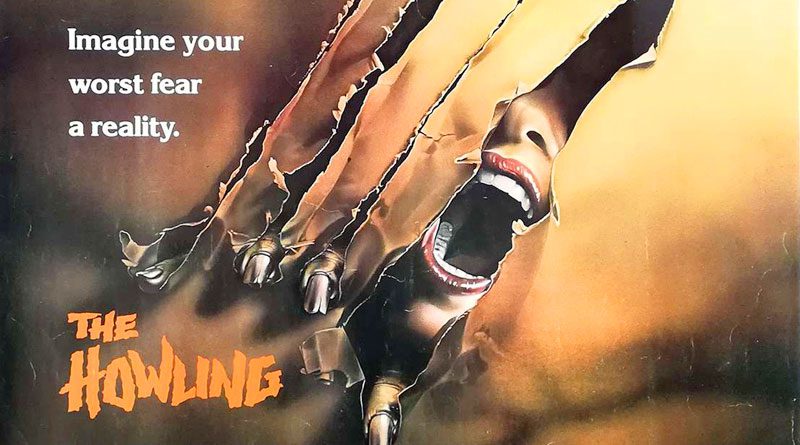The Howling at 40: Joe Dante’s Groundbreaking Werewolf Movie
The 1980s are the decade best remembered for introducing then-groundbreaking practical effects seen in creature-themed horror films. Among them happens to be werewolf movies, with the seminal year of 1981 gave us three all-time genre classics including The Howling, Wolfen and An American Werewolf in London.
The former was the first out of the gate, which marks Joe Dante’s third directorial effort at the time (not counting his documentary feature in 1968’s The Movie Orgy and his uncredited work in 1979’s Rock ‘n’ Roll High School). Already proving his worth in combining exploitative B-movie horror formula with a subversive sense of humour seen in 1978’s Piranha, Dante repeats the same feat in The Howling. Made at a low-budget US$1.5 million, The Howling managed to bring in a box-office total of US$17.9 million — not a huge financial success but more than enough to spawn numerous sequels throughout the 80s and 90s. The last Howling movie to date — eighth, to be exact — was The Howling: Reborn in 2011. Then, last year in 2020, It duology director Andy Muschietti was tapped to remake The Howling for Netflix.
Having revisited The Howling to coincide with its 40th anniversary, I’m still impressed with the way Rob Bottin — then-21 years old makeup effects maestro, who happens to be the legendary Rick Baker’s protege — handling the werewolf transformation sequences. The elaborate scene where the serial killer Eddie Quist (Robert Picardo) gradually transforming his human body into a werewolf in front of a frightened Karen (Dee Wallace, best known for her role as Mary in Steven Spielberg’s E.T. the Extra-Terrestrial the following year) remains a technical marvel. Mind you that this was meticulously done during the pre-CG era.
Ironically, Baker was supposed to be in charge of The Howling‘s makeup effects but ended up working for John Landis’ An American Werewolf in London instead. Bottin did a great job here, who would go on handling impressive makeup effects in memorable movies like The Thing (1982), RoboCop (1987) and Total Recall (1990). His last work to date was HBO’s Game of Thrones in 2014. Strangely enough, Bottin’s work in The Howling was unfairly snubbed by the Oscars, with Baker got nominated and won the Best Makeup award for the aforementioned werewolf movie.
Written by John Sayles and Terence H. Winkless, Joe Dante doesn’t waste time establishing its surrealistic tone from the get-go, which can be evidently seen during the opening scene. Here, we are introduced to a famous TV anchor named Karen White (Wallace), where she’s trying to make contact with the serial killer Eddie (Picardo). And at the same time, she is also cooperating with the police in a sting operation to apprehend the serial killer as well. However, things go awry that Karen ends up heavily traumatised by the unspeakable event after she finally encounters him in the viewing booth of a porn store.
With Karen unable to return to work for the moment, her husband Bill (Christopher Stone) accompanied her to a country retreat called The Colony to deal with her problem. Managed by her therapist Dr George Waggner (Patrick Macnee), the retreat houses other patients as well. As the movie progresses further, it turns out that The Colony is something else altogether.
I have to admit The Howling moves at a deliberate pace with some of Dante’s otherwise trademark offbeat humour is more of a hit-and-miss affair. Still, it’s hard to deny his contribution and influence on the werewolf movie at the time, with the aforementioned transformation sequence being one of them. Another scene where one of the patients, Marsha (Elisabeth Brooks) seduces Bill and ends up making love in front of a campfire is worth mentioning, even though the brief silhouette moment of them in werewolf forms suffer from shoddy animated effects.
Then, there’s the climactic third act which grows increasingly pessimistic with The Howling concludes with the perfect timing of a dark-comedy vibe in a bar scene, as the camera subsequently panning to one of the characters ordering a hamburger rare.
Following the success of The Howling, Joe Dante went on to direct Gremlins three years later, which turned out to be his highest-grossing film to date even until today.




